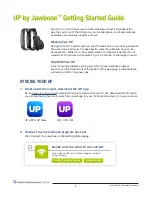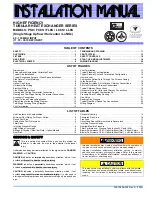
25
Posterior positioning
Figure 25a:
Children can be positioned in
the Pacer facing the rear (open end) of the
frame. This is called posterior positioning,
and allows advanced users to move freely
without obstructions below or in front of
them.
Children positioned posteriorly generally
require less support and fewer accessories.
• Arm prompts or handloops should be
attached as close to main frame uprights
as possible. Refer to the warnings on
pages 3 and 4 for important safety
information.
• Chest prompt (if used) opens front
and back for easy transfers during
posterior positioning.
To change to posterior confi guration:
1. Apply the caster brakes
to immobilize
the Pacer.
2. Turn accessories
to face open end of
Pacer frame and reattach to the top bar.
3. Reset swivel locks
in opposite direction
if needed (see page 7).
4. If any other prompts are required
follow anterior positioning instructions
in reverse (see Pages 22 – 24).
5. Release caster brakes.
For more details on accessories, function
and recommended uses, go to:
www.rifton.com/pacer
Figure 25a




































